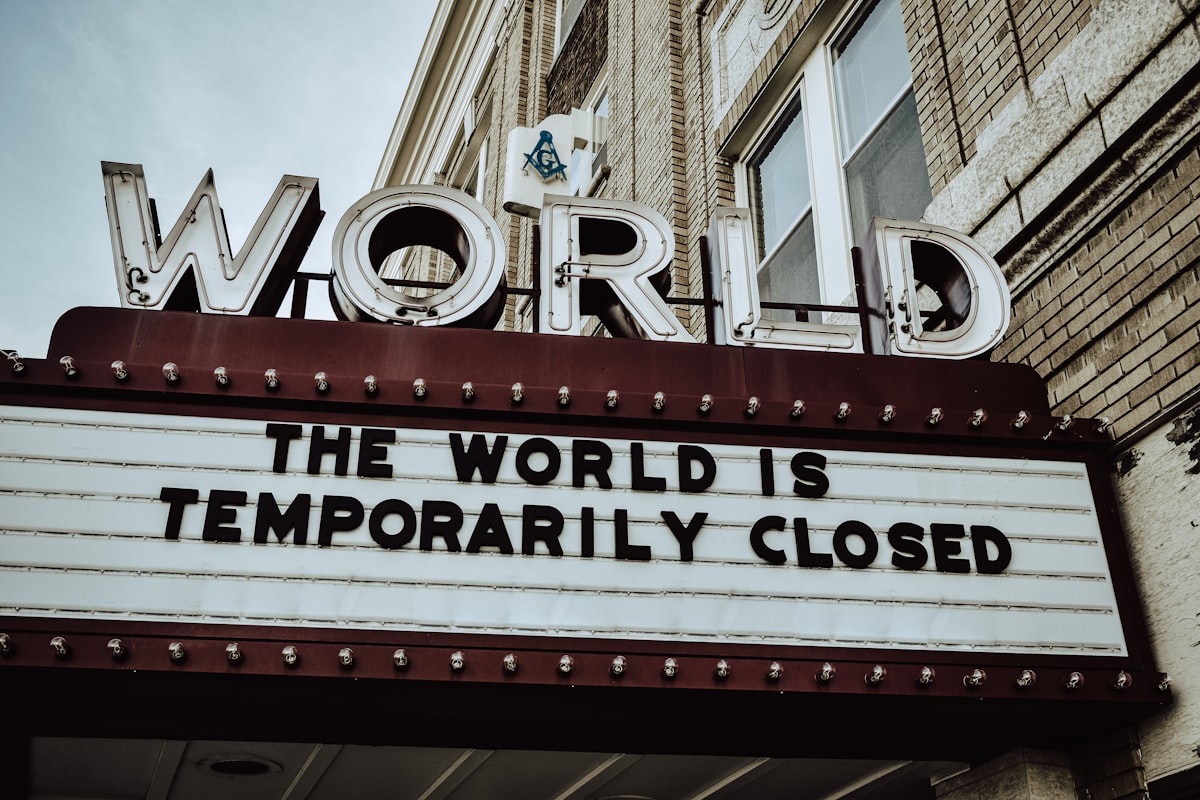How Will The Housing Market Survive The Pandemic?
How will COVID effect the housing market for the future? Will it recover?

The COVID-19 pandemic has forced many industries including Real Estate to be on pause. No one has a crystal ball, but we would sure like to know when this pandemic ends and what happens next. The best we can do is assess where we are now, and forecast based on trends, human behavior, and history.
Current Conditions
Depending on where you are located, the housing market may look different. With the Fed cutting rates in March, there was a positive impact on mortgage activity. Additionally, refinance activity had also increased due to those low rates. However, applications for new homes had hit a low. Diana Olick of CNBC stated that “applications to purchase a home fell for the fifth straight week, down 2% from one week earlier and down a striking 35% from a year ago.” Although this is disappointing, it shows some promise in the way of the economy. According to Mortgage Banker’s Association’s economist, Joel Kan, “the decline in rates… is a sign that the mortgage-backed securities market is stabilizing and lenders are successfully working through their lending pipelines.”
Pandemic Mortgage Realities
The spring housing market is not what was expected at the beginning of 2020. Those hit hardest were those most affected by the disease. Purchase applications in California, New York, and Washington state are almost half of what they were this time last year. These are unprecedented modern times. According to Freddie Mac’s chief economist, Sam Hater, “undoubtedly, the housing market is facing its greatest challenge in over a decade as our nation weathers this unprecedented economic event.”
Essential Employees
In many states, including New York, Pennsylvania, California, Realtors are deemed non-essential contractors. This can mean different restrictions for different states. In many states, it means zero in-person home showings. Some states, however, have lifted bans and deemed that essential housing work can be done. For states like Pennsylvania, this is not the case. In fact, Pennsylvania Association of Realtors sued their governor to change their status to that of essential workers. They have cited that “acquiring shelter” is essential.
Still, one can market properties online. However, as Realtor Jacqueline Krazewski states, “if you want to buy a house without seeing it in person, you can.” For Jacque and other agents, this translates to a risk that most clients are not willing to take. Therefore, applications for new mortgages are at a low.
Past Pandemics and Human Behavior
In order to know where this is going, it is important to consider things that have happened in the past. Additionally, we need to consider how humans have behaved after past pandemics. As we know, much of the economy depends upon the Real Estate Industry. Its an integral component and litmus test for the overall health of the economy.
According to Zillow’s research, “during… the 1918 influenza or the 2003 SARS outbreaks, economic activity fell sharply.” However, it “snapped back quickly once the epidemic was over.” Additionally, it is important to consider home prices, which during a pandemic tend to stay pretty stable. For example, “during SARS, Hong Kong house prices did not fall significantly.” However, “transaction volumes fell by 33-72% as customers avoided human contact.” After the epidemic was over, transactions went back to normal volumes. This research also matched models done by many organizations when predicting how a pandemic may affect annual GDP.
Given current market research, this pandemic shows a “particularly strong ‘wait and see’ pattern.” This closely matches “what happened during the SARS outbreak.” “Customers are not going to walk-throughs or closing on transactions in person.” The current economic pattern shows a sharp fall. This sharp fall shows that it is not a standard recession. However, real estate may come to an almost complete halt as it has in China due to COVID-19.
Post-Pandemic Predictions
Much of the Real Estate Industry has been put on pause, but not fully cancelled. According to Freddie Mac’s chief economist, Sam Khater, they “expect that most of the economic damage from the virus will be contained to the first half of the year.” In fact, homebuyers are still out there doing virtual tours and looking for bargains. Home sales are expected to decrease in 2020 to 5.1 million homes, which is a decrease from previous projections. Freddie Mac optimistically projects that 6.1 million homes will sell in 2021.
Additionally, although stable, the price growth of homes is supposed to cool down a bit. Freddie Mac projects an annual rate of 0.4 percent in 2020 and 0.7 percent in 2021. MBA Economist Kan also states that “the purchase market is still expected to rebound.” As long public health measures reduce the pandemic’s spread, it will “result in a broader recovery.”
Economists are trying to predict what the recovery will look like. According to Zillow it is “difficult to precisely forecast the economic downturn.” Additionally, it is difficult to project “how such a downturn could provoke a standard recession.” A survey done with Realtor.com stated that 36 percent of home shoppers think that the U.S. has entered a recession. Additionally, 33% of shoppers thought there was a recession to come in the next three months. However, “home shoppers who are still actively shopping reported greater optimism about home buying.”
Change and Acceleration
There are many agents making it work as best they can given the new climate. Many are showing homes virtually and leaning on technology more than ever. An adapted excerpt of our previous article touches upon some of the changes that agents are making:
According to Jeff Andrews of Curbed “real estate professionals are having to find innovative ways to finish transactions that were already underway and create a path forward for future sales.” Given these situations, it is critical that agents have the ability to digitize. We suggested NuOp as a tool that allows Realtors to complete legally binding referrals within the platform. Additionally, NuOp offers a Community space where Agents can consult with other Agents. You can discover creative ways that other RE professionals are handling the barriers in front of them.
Many agents are still completing closings and are finding ways to adapt to stay afloat during this slowed time. Louise Phillips Forbes, an agent in New York City explained to Forbes a recent interaction she had in order to close a deal. She said, “we had one deal close recently where there were four cars in a parking lot representing the bank’s attorney, the seller’s attorney, the buyer’s attorney, and the title company ‘masked and gloved’ running back and forth getting signatures. That brings me hope that we can get through this.”

Comments ()